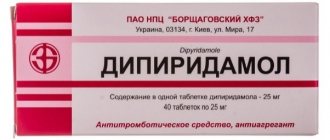Nasal congestion and swelling of the mucous membrane are common phenomena during pregnancy. The woman’s immunity is now weakened, and the body quickly catches the virus. In addition, expectant mothers are often tormented by the so-called runny nose of pregnant women, when the nose is stuffy throughout the entire period, and it is simply impossible to breathe.
If you weren't pregnant, most likely you would drip your nose with what you're used to, and once again you wouldn't worry about safety. But when life develops inside, the attitude towards treatment changes fundamentally. Now you weigh every step you take, even something as necessary as ensuring normal breathing.
If your nose is blocked and it becomes difficult to breathe, the best thing to do would be to see a therapist. After all, treatment depends on the cause of the runny nose, how far into pregnancy you are, how you feel, and how tolerable the situation is. Most doctors advise against using any nasal drops unless they are absolutely safe, even for newborns. But not all pregnant women are satisfied with such recommendations, especially since the doctors themselves say: you can’t choke - you need to treat. Therefore, pregnant women are often prescribed various anticongestion medications, including Sanorin.
Composition of the drug
The active ingredient of the drug is an alpha-adrenergic agonist called Naphazoline.
The drug has many effects on the human body. Naphazoline binds to adrenaline receptors, stimulating them. The medicine helps to contract the vascular wall and reduce its diameter. Due to this, the drug causes a decrease in blood flow to the mucous membrane of the nasal cavity, reducing its swelling. Clinically, this effect manifests itself in relieving nasal congestion and facilitating breathing. The drug also reduces the intensity of the inflammatory reaction.
The onset of the therapeutic effect of Naphazoline is observed a few minutes after administration of the drug into the nasal cavity. The effect lasts about 3-8 hours. When used topically, the drug practically does not enter the systemic circulation.
A small part of the drug that enters the vascular bed can have general effects on the human body. The drug is processed in the liver tissue, then it is excreted in the urine through the filtration apparatus of the kidney. Complete purification of the blood from Naphazolin is observed on the third day after administration.
The general effect of Sanorin is associated with stimulation of alpha receptors for adrenaline. The drug reduces the lumen of small vessels, especially the renal capillaries. This effect leads to an increase in blood pressure.
Naphazoline also helps to dilate the pupil of the eye by contracting the muscular system of the eye. High concentrations of the drug in the blood cause a decrease in heart rate and urinary retention. The drug stimulates the contractile activity of the uterus when used systemically.
special instructions
It is worth remembering that, like any other decongestant, Sanorin causes the development of tachyphylaxis - a temporary decrease in the effectiveness of the drug. This occurs if the patient uses the drug for more than one week. In addition, if used for longer than the specified period, there is a risk of developing addiction to the drug, when the vessels of the nasal cavity cannot narrow without the help of the drug. This is especially true for cases of using Sanorin during pregnancy.
Release form and expiration date
The drug is available in the form of a nasal spray. 10 milliliters of the drug contains 0.01 grams of active substance. The nasal spray is sold in a plastic bottle with an applicator attached.
Sanorin also has a second release form - nasal drops. They are sold in the form of 0.05 and 0.1 percent Naphazoline solution. The drug is in a glass bottle equipped with a dropper.
On the modern market there is an emulsion called Sanorin, which contains eucalyptus oil. The drug contains a 0.1 percent solution of Naphazoline. The drug is sold in pharmacies in glass bottles.
The shelf life of all dosage forms is 48 months from the date of release. After its expiration, the use of the medication is strictly prohibited. The drug should be stored in a dark place, at a temperature range of 10 to 25 degrees Celsius. Parents should not allow the medication to come into contact with small children.
Description
Many people have been familiar with Sanorin since childhood, since there is a children's version of this drug. Therefore, many expectant mothers have no doubt that this remedy can be used in their situation.
After all, if the product is used to treat children, then it is absolutely safe. But is this really so? Let's figure out whether it is permissible to use the drug Sanorin during pregnancy.
Compound
The active substance is naphazoline nitrate. This substance effectively constricts the vessels in the nasopharynx, which leads to the removal of swelling and weakening of exudation. That is, the nose stops running, and breathing becomes much easier.
In addition, naphazoline nitrate activates the outflow of secretions from the nasal paranasal sinuses. Thanks to this, the risk of developing dangerous diseases such as sinusitis and frontal sinusitis is reduced.
The drug has a fast action. An improvement in the condition is noted literally a few minutes after using drops or other forms of Sanorin. The healing effect lasts about 6 hours.
Forms
A remedy for the treatment of runny nose is available in several forms. The active substance is the same in all versions, but the composition of the auxiliary components may differ.
Drops. This dosage form contains ethylenediamine and methylparaben. To combat fungal flora, which can cause a runny nose, boric acid is added to the composition. Externally, the drops look like a transparent, suspended and colorless solution. Packaged in plastic bottles with droppers.
- Emulsion. This form contains polysorbates and eucalyptus essential oil, paraffin. Unlike drops, emulsions are milky white in color. Packaged in glass or plastic bottles with droppers.
- Spray. This form has the same composition as the drops. The only differences are in the packaging; bottles with a sprayer are used for packaging.
- Allergin. This form is designed specifically for the treatment of allergic diseases and is available in the form of eye and nasal drops.
It is worth choosing the form of the drug taking into account the disease. So, for allergic rhinitis, doctors recommend using Alergin. For the flu, you can use an emulsion, spray or drops.
Indications for use
Sanorin is indicated for pregnant women for the treatment of gestational rhinitis. This disease occurs approximately in the middle of the second trimester of gestation. The mechanism of development of a runny nose is associated with the transudation of fluid from the vessels into the mucous membrane of the nasal cavity. The reason for this phenomenon is an increase in the volume of circulating blood.
The drug can be used for acute inflammation of the nasal mucosa. The medication is also indicated for the treatment of sinusitis and sinusitis.
Sanorin during pregnancy is used to treat allergies manifested by nasal congestion. The medication makes breathing easier and helps reduce the inflammatory reaction. Most often, this drug is indicated for the treatment of hay fever - a seasonal allergy to pollen.
The medicine can be used to stop nosebleeds. The drug reduces the lumen of blood vessels located in the mucous membrane. The use of Sanorin reduces blood flow to the nasal cavity.
Read more: [Treatment of fever during pregnancy]
When is it shown?
Sanorin is used for all kinds of rhinitis, sinusitis, pharyngitis, laryngitis, as well as otitis media, when it is very important to relieve internal pressure on the auditory tube. Doctors also prescribe it for various colds, flu, bronchitis, etc.
n. That is, in all cases when the inflammatory process somehow affected the nasal area.
It can be used independently or as part of complex therapy, since it interacts well with most drugs. But keep in mind that Sanorin itself does not heal. It acts exclusively as a symptomatic remedy, that is, it facilitates breathing and relieves vascular spasm.
Effect of the drug on the fetus
If the dosage and method of use are observed, the drug does not cause negative consequences for the fetus. The drug does not have a teratogenic effect - it does not contribute to the development of congenital anomalies and deformities in the unborn child. Also, the medication does not have a toxic effect; Naphazoline does not cause intrauterine growth and development retardation.
When applied topically, the drug is practically not absorbed into the systemic circulation, so it does not reach the fetus. However, taking large doses of Naphazoline or improper use of the medication can cause systemic reactions.
In the first trimester of pregnancy, the most important changes occur in the body of the unborn child - the formation of the rudiments of all the baby’s organs is observed. Taking medications can contribute to mutations and disruption of cell division. This is why doctors do not recommend taking Naphazolin in the early stages of pregnancy.
After the 12th week of pregnancy, the fetus has the rudiments of all major organs. Also in the second trimester of gestation, the placenta fully performs its protective function. That is why taking Sanorin at a later stage is safe for the baby’s body.
Instructions for use
Before using the medicine, the expectant mother should consult a doctor. Under no circumstances should the drug be used for more than 5 days in a row. The absence of a break in taking vasoconstrictor drops and sprays is a risk factor for the body becoming accustomed to the medication. Subsequently, a runny nose will not go away on its own without the use of this group of drugs.
When using Sanorin for the first time, you should press the dispenser several times, releasing the first portion of the drug into the air. It is recommended to store the medication with the cap closed.
When using the drug in the form of drops and sprays, the expectant mother should squeeze or inject 1-3 doses of the drug. This procedure should be repeated no more often than every 6-8 hours. The maximum dose per day is four times the use of the drug.
Before using the medicine, you need to tilt your head back. After taking the drug, you should maintain this position for several minutes, this prevents the reverse flow of Sanorin.
Can pregnant women take it or not?
The instructions for the drug contain no contraindications for use during pregnancy.
It is possible that the main reason for this is the lack of clinical studies of the drug. But if the attending physician prescribed Sanorin, then you can safely use it. The only thing worth paying attention to is the release form. Can pregnant women take it? Yes, but pregnant women should choose drops, especially during the 1st trimester
They contain a lower concentration of the active substance.
In the 1st trimester. Can the medicine be used during the 1st trimester? This period is the most important for both mother and baby. In the first 13 weeks, the foundation of the child’s health is laid: internal organs and all important body systems are formed. Therefore, a cold at this time is extremely undesirable. If a woman still gets sick, you can use Sanarin, but try to use the medicine for a short period of time. In the first 13 weeks, it is preferable to use drops, due to the lowest concentration of the active substance in them. Since there is still a risk of the medicine getting into the stomach, it is better to moisten a cotton swab with it and gently wipe the nasal passage.
In the 2nd trimester. Starting from the 14th week, the risk of developing fetal pathology decreases, and you can relax a little. By this moment, the child has grown to 10 cm, and begins to take his first breaths and exhalations. By this time, the expectant mother feels much better, because toxicosis is left behind. When a cold appears, it is permissible to use Sanorin, but now not only in the form of drops, but also in the form of an emulsion
Just note that it contains essential oils that can cause an allergic reaction.
In the 3rd trimester. After 27 weeks, all the baby’s organs have formed and their maturation begins
By this time, the mother can gain 5-6 kilograms and her weight reaches its maximum. The belly grows with the baby, adding a couple of centimeters every week. As in previous trimesters, Sanorin can be used if necessary.
Contraindications
The drug is strictly prohibited for use by persons who have allergic reactions to the components of the drug. Also, the drug should not be used by patients with angle-closure glaucoma. This disease is accompanied by a violation of the outflow of intraocular fluid from the anterior chamber of the eye. Taking the drug causes dilation of the pupil, which creates an additional obstacle to the described process.
This drug should be used with extreme caution by people with other eye diseases. Taking the drug may worsen existing pathologies. Before using Sanorin, patients are advised to consult an ophthalmologist.
Also, the following conditions and diseases are contraindications to taking this drug: severe atherosclerotic vascular damage;
- diabetes;
- high blood pressure numbers;
- increased heart rate above 90 per minute;
- hyperfunction of the thyroid gland.
Side effects
Due to local administration, the drug rarely causes systemic side effects. Some patients experience unpleasant symptoms in the form of irritation, redness and itching of the nasal mucosa. It is also possible to develop an allergic reaction such as swelling or skin rashes.
If the instructions for use are violated or if there is an overdose, systemic reactions may develop. The drug can cause nausea, arterial hypertension, increased heart rate, dizziness, and general weakness.
Analogues of Sanorin
Nazivin is an analogue of Sanorin, available in the form of drops and spray for the nasal cavity. The drug contains Oxymetazoline. The drug reduces swelling of the nasal mucosa, so it eliminates a runny nose. If you follow the instructions for use, the use of the drug is not prohibited at all stages of pregnancy.
Lazorin is a drug sold as a nasal spray. The medication is used to treat various types of rhinitis. The drug helps reduce blood supply to the mucous membrane, thereby reducing nasal congestion. Lazorin can be used at any stage of pregnancy, but if possible it should not be used in the first weeks of pregnancy.
Rhinorin is a combination drug that contains sodium, potassium and calcium chloride. The drug helps cleanse the nasal mucosa from pathogenic bacteria and viruses. The drug also improves local immunity. The medication is indicated for the treatment of rhinitis of infectious etiology and moisturizing the mucous membrane. The drug can be used in the 1st, 2nd and 3rd trimester of pregnancy.
Sinupret is a herbal preparation that contains extracts of sorrel, elderberry, gentian, and verbena. The drug is available in the form of tablets and drops for oral administration. Sinupret provides a decrease in the intensity of the inflammatory reaction, an antibacterial effect, as well as reflex removal of exudate. The drug is indicated for the treatment of sinusitis of various etiologies. In the absence of contraindications, taking the medication is possible at any stage of pregnancy.
Pinosol is a safe nasal drop containing natural ingredients. The drug contains eucalyptus oil, peppermint and pine extract. The drug is indicated for the treatment of acute and chronic diseases of the nasal mucosa and paranasal sinuses. The drug is approved for use from the 1st trimester of pregnancy.
Sanorin during pregnancy in the 1st, 2nd and 3rd trimester
The list of drugs that are clearly approved for pregnant women is extremely small. This is explained by the lack or complete absence of large-scale studies of the effect of a particular drug on the body of the expectant mother and fetus. And if there is no accurate data, then it is preferable to refrain, if possible, from any intervention with uncertain consequences.
However, if the question is not about mild discomfort, but about the complete absence of nasal breathing, then this problem should not be ignored.
Impaired gas exchange in the mother leads to a lack of oxygen in the fetus, which cannot have a positive effect on its development, so it is not worth showing “heroism” and enduring nasal congestion in spite of everything.
Especially at night, when you need to fully rest and recuperate to fight a cold.
The effective vasoconstrictor drug Sanorin will help relieve swelling, hyperemia and suppress excessive mucus secretion. During pregnancy, the appearance of extremely undesirable side effects during this period is possible due to systemic exposure to the drug in the case of:
- exceeding the recommended dose or frequency of use;
- ingestion and subsequent absorption of the active substance from the gastrointestinal tract into the bloodstream.
To maximize the deposition of the drug on the nasal mucosa and reduce the risk of getting into the stomach, pregnant women are not recommended to use Sanorin drops. Other forms of release are preferred - spray or emulsion.
Sanorin before missed period: dangerous or not?
A woman notices a delay in menstruation around the fifth week of pregnancy, that is, in the third week after fertilization. For the first 6 days of its development, the embryo is quite autonomous - it feeds from its own yolk sac and is not yet connected to the mother’s bloodstream. Therefore, there should be no negative consequences from using Sanorin at such an early stage.
On the 7th – 8th day after fertilization, the process of implantation of the embryo into the wall of the uterus occurs, and from this moment there is a close connection between the expectant mother and the embryo. Through the chorionic villi, many toxic substances from the blood of a pregnant woman can enter the developing body.
However, even if naphazoline (the active ingredient of the drug Sanorin) enters the systemic circulation, the possibility of penetration through the placental barrier for this molecule has not been proven.
Sanorin in the 1st trimester
The 1st trimester lasts until the 13th week of pregnancy and is extremely important for the formation and development of the main organs and systems of the unborn baby. The most dangerous, so-called critical periods, are:
- from 4 to 6 weeks, when the rudiments of the central and peripheral nervous systems, heart and blood vessels are formed;
- from 8 to 12 weeks due to the beginning of the formation of the placenta - a vital organ that will nourish the fetus until birth.
During these periods, it is recommended to protect yourself especially carefully from any infections, since they themselves and their treatment can negatively affect the course of pregnancy. If there is an urgent need to use Sanorin during pregnancy in the 1st trimester, you can use a spray or emulsion strictly following the instructions for use.
Sanorin in the 2nd trimester
After the 14th week, you can relax a little - the baby is still fragile and vulnerable, but nevertheless the risks associated with the development of severe defects and pathologies have decreased.
For the treatment of rhinitis, we can recommend, for example, Sanorin emulsion with eucalyptus. During pregnancy, a thicker consistency than regular drops will be useful.
The expanded composition, which includes cetyl alcohol, petroleum jelly and eucalyptus oils, prevents drying of the mucous membrane and ensures uniform distribution throughout the nasal cavity with a minimal percentage of ingestion of the drug.
Note! If you are prone to allergic reactions, use preparations containing essential oils with caution.
Sanorin in the 3rd trimester
Just as throughout pregnancy, after 27 weeks the use of Sanorin is not contraindicated. The choice of release form is at the discretion of the attending physician; there are no official recommendations in this regard.
For ease of use, you can use a spray form. The dispenser makes it easy to use and ensures deep, uniform penetration of small particles of the drug.
The consequences of using Sanorin spray in late pregnancy have not been studied enough, however, there is every reason to believe that the product does not have any negative effect on the fetus.
Instructions for use of Sanorin during pregnancy
Sanorin is a drug from the group of alpha-adrenomimetics, enhances the sympathetic effect on the vessels of the nasal mucosa, leading to their narrowing, reduces mucus secretion, and eliminates swelling. It is used mainly for the treatment of rhinitis, sinusitis, as well as in the complex therapy of otitis and eustacheitis.
Mode of application:
- 0.1% solution in drops (0.05% solution is used mainly in pediatric practice) instill up to 3 drops into each nasal passage, 3 – 4 times a day;
- the emulsion is instilled in the same way, however, due to longer contact with the mucous membrane, it can be used up to 2 - 3 times a day;
- The spray is applied 1 - 3 doses in each nasal passage, 3 - 4 times a day.
Important! Continuous treatment for more than a week is not recommended. When positive dynamics are achieved and the condition improves, it is advisable to stop taking it as soon as possible.
Sanorin Loris during pregnancy
This unique oral care product contains natural ingredients that can be used not only for prevention, but also as part of a complex treatment of inflammatory throat diseases. Honey, propolis, thyme and ascorbic acid have antiseptic and anti-inflammatory effects, increase the body's resistance to infections.
During pregnancy, Sanorin Loris spray is not contraindicated, therefore it can be considered as a safe alternative to drugs containing local antiseptics and anesthetics, widely prescribed in ENT practice.
Reviews about the use of Sanorin during pregnancy
The drug Sanorin has established itself among doctors as a reliable, effective and safe remedy that causes virtually no side effects. It is used in pregnant women for a short course to facilitate nasal breathing and reduce rhinorrhea.
Patients note the ease of use and variety of release forms, allowing them to choose the most comfortable option for themselves, taking into account individual characteristics. Among other positive properties, the rapid onset of the effect and its persistence for several hours are also noted.
Elena Kravets, general practitioner, especially for Mirmam.pro
Source: https://mirmam.pro/sanorin-pri-beremennosti









